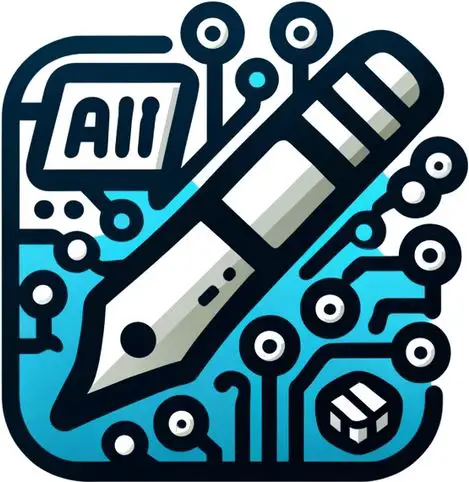Introduction To Ai Writers: Revolutionizing Content Creation
- How Ai Writers Work: The Technology Behind The Text
- Advantages Of Using Ai Writers For Businesses And Individuals
- Types Of Content Ai Writers Can Generate
- Integrating Ai Writers Into Your Content Strategy
- Ethical Considerations And Challenges Of Using Ai In Writing
- The Future Of Ai Writers: Trends And Predictions
- Sources
The advent of AI writers marks a groundbreaking evolution in the realm of content creation, ushering in an era where artificial intelligence significantly influences how we produce, distribute, and consume written material. These sophisticated algorithms, trained on vast datasets encompassing a wide array of topics and writing styles, are capable of generating coherent, contextually relevant text that closely mimics human writing.
This technological revolution is not merely about automating tedious writing tasks; it's about augmenting human creativity and efficiency, enabling writers to focus on higher-level conceptual work while AI handles the heavy lifting of drafting and research. As we stand on the brink of this new frontier, AI writers such as AIWRITER promise to redefine our relationship with written content, making it more accessible, customizable, and engaging than ever before.
How Ai Writers Work: The Technology Behind The Text
AI writers operate on sophisticated algorithms and machine learning models that enable them to generate text. At the heart of this technology is natural language processing (NLP), which allows the AI to understand, interpret, and produce human language in a way that is both coherent and contextually relevant. These systems are trained on vast datasets of text from the internet, books, articles, and other sources to learn various writing styles, grammar rules, and subject matter expertise.
Through techniques like deep learning, AI writers can analyze patterns in data, understand sentence structures, and even grasp nuances of tone and emotion. As they generate text, these models continuously learn from feedback and adjustments made by human overseers or through self-improvement algorithms, enhancing their ability to mimic human-like writing more closely with each iteration.
Advantages Of Using Ai Writers For Businesses And Individuals
In the rapidly evolving landscape of content creation, AI writers have emerged as invaluable tools for both businesses and individuals. These sophisticated algorithms can generate high-quality text in minutes, significantly reducing the time and effort traditionally required for writing tasks. For businesses, this translates to enhanced productivity and the ability to quickly produce a wide array of content, from marketing materials to technical documents, without straining human resources.
Individuals benefit from AI writers by overcoming writer's block and improving their writing skills through suggestions and corrections made by the software. Furthermore, AI writers are accessible around the clock, offering flexibility that caters to various schedules and deadlines. This technological advancement democratizes content creation, making it more efficient and accessible for everyone involved.
Types Of Content Ai Writers Can Generate
AI writers, empowered by advancements in artificial intelligence, are versatile tools capable of generating a wide spectrum of content types to meet various needs. From crafting engaging blog posts that capture the essence of human emotion and curiosity, to composing intricate technical reports filled with specialized terminology and analyses, these digital scribes handle it all. Not just limited to prose, they can also create captivating marketing copy aimed at boosting engagement and conversions.
Furthermore, AI writers excel in producing educational materials that simplify complex topics for easier understanding. Even the realm of creative writing isn't beyond their reach; they can spin tales and generate poetry that resonates with readers. This diversity makes AI writers an invaluable asset across industries, enabling businesses and creators alike to produce high-quality content efficiently and effectively.
Integrating Ai Writers Into Your Content Strategy
Integrating AI writers into your content strategy offers a transformative approach to content creation, allowing for scalability and innovation. The key lies in harnessing their capabilities to complement human creativity, not replace it. Begin by identifying repetitive, time-consuming tasks that can be automated, such as data analysis for trend identification or generating initial drafts for blog posts. This enables your human team to focus on adding nuanced insights, emotional intelligence, and brand voice—elements that AI currently cannot replicate with the same depth.
Furthermore, integrating AI requires a thoughtful approach to training these systems on your specific brand guidelines and voice to ensure consistency across all content outputs. By establishing a symbiotic relationship between human creativity and AI efficiency, businesses can produce high-quality, engaging content at scale while also staying ahead in the fast-paced digital landscape.
Ethical Considerations And Challenges Of Using Ai In Writing
The integration of AI into the domain of writing presents an array of ethical considerations and challenges that must be meticulously navigated. A primary concern revolves around the authenticity and originality of content. As AI algorithms generate text based on vast databases of existing works, the lines between inspiration and plagiarism blur, raising questions about intellectual property rights and the uniqueness of creative expression.
Furthermore, the potential for AI to perpetuate biases present in its training data poses significant ethical dilemmas. Without careful oversight, these systems can inadvertently reinforce stereotypes or marginalize voices, undermining efforts toward diversity and inclusivity in literature and journalism. Additionally, the displacement of human writers by AI technologies sparks debates over job security, emphasizing the need for a balanced coexistence that leverages AI's capabilities while honoring human creativity and ethical standards.
The Future Of Ai Writers: Trends And Predictions
The future of AI writers is poised at a fascinating juncture, blending the realms of creativity with technological innovation. As we look ahead, one trend that emerges strongly is the increasing sophistication in natural language generation algorithms. These advancements will enable AI writers not only to produce content that rivals human quality in terms of readability and coherence but also to understand and mimic nuanced writing styles specific to genres or authors.
Another significant shift is the growing integration of AI in collaborative writing tools, where human authors and AI systems work synergistically, each playing to their strengths. This partnership promises to enhance productivity, creativity, and perhaps even redefine authorship itself. Furthermore, ethical considerations and copyright implications surrounding AI-generated content will drive regulatory developments, shaping how AI writers are utilized across industries. In sum, the landscape for AI writers is evolving rapidly, heralding a new era of content creation that balances human ingenuity with artificial intelligence.
Sources
AI-Writer.com(tm) - The only AI writing platform built to be trusted.Exploring the Benefits of AI Writing
The ethics of using AI writing tools
How AI writers can revolutionize writing | B12


